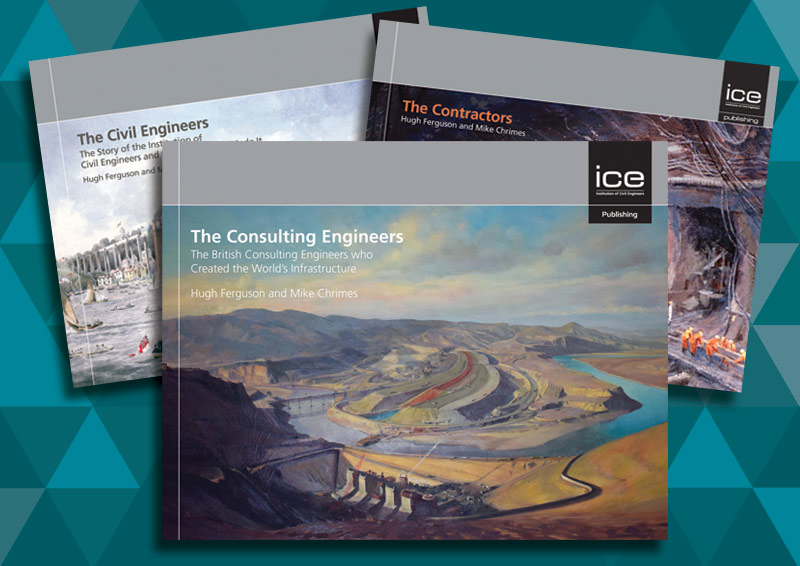Following the success of The Civil Engineers and The Contractors, Hugh Ferguson BSc(Eng) CEng FICE MCIHT and Mike Chrimes MBE BA, once again show their unique insights and passion for engineering in a fascinating new title. The Consulting Engineers: The British consulting engineers who created the world’s infrastructure, discusses the major role that British consulting engineers played in the development of the world’s infrastructure, and how the profession has evolved.

- Updated: 23 Jan 2020
- Author: Hugh Ferguson and Mike Chrimes
British consulting engineers have been advising governments, businesses and other clients for centuries. In so doing they were responsible for the development of major infrastructure across the world growing and evolving from the 19th century and expanding into major new areas into the latter half of the 20th century.
Through archival research and interviews with leading consultants, they have sought to reveal a hidden history of triumph and disaster.
The profession has changed substantially over the centuries. Early consulting engineers were rarely full time, earning part of their livings from other activities including contracting. John Smeaton defined, by example, what a consulting engineer should be “a person of absolute integrity, working only for a fee without a financial interest in the projects on which he was advising”. William Jessop was the first to be called a ‘consulting engineer’ in the early 19th century, and it was another century before the profession was formally established, with the establishment of the Association of Consulting Engineers.
But over the last 30 years the financial and regulatory environment in which consulting engineering firms operate have changed dramatically. The traditional partnership model has disappeared for all but the smallest firms; firms that existed for more than 150 years have effectively disappeared, as global businesses developed offering clients a one-stop-shop for all manner of services. However, smaller specialist firms continue to thrive, driven by the interests of individual engineers and their like-minded colleagues. Overall, the work undertaken, and the services provided by British consulting engineers have continued to expand.
The notion of a consulting engineer offering advice independent of commercial interest may have become compromised. Yet as this book demonstrates, generations of engineers have strived to provide expert advice to their clients and, in the process, they have transformed the world.
The Consulting Engineers does not provide a simple eulogy to a vanishing aspect of the industry, but rather describes a complex history in which experts are constantly called upon to support the ever-increasing ambitions of society. On occasion they have failed – with some (as we describe) in spectacular fashion. But for the most part, they have succeeded in transforming the world, for the good of all.
Copies of The Consulting Engineers are available for purchase as an individual title, both in print and in digital format. It is also available as a set with the authors’ other two titles, The Civil Engineers and The Contractors, in print and as an eBook.
